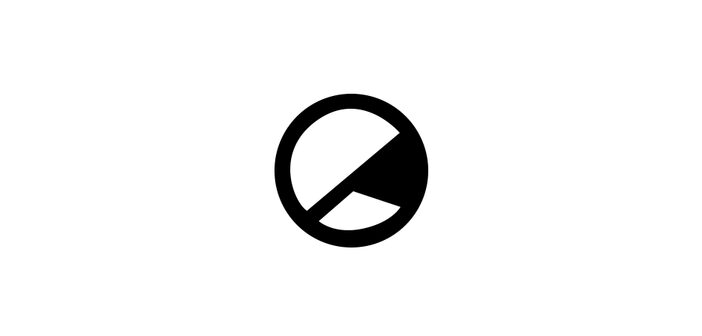This production is an overwhelmingly physical, visceral expression of the calm insanity of grief, in which every detail has been made profound.
-
10
I am a staunch defender of theatre; of its ability to command a power that nothing else can, when it is done right. Enda Walsh’s production of Grief is the Thing with Feathers is now my go-to evidence for anyone who argues otherwise – like poetry in four dimensions, using the stage space in innovative and meaningful ways, and with astonishing performances, Grief ate me up and spat me out, hollow and shaking.
Grief is the Thing with Feathers is an adaptation of Max Porter’s novel of the same name, following Dad (Cillian Murphy) and his two sons, Older Boy (David Evans, Taighen O’Callaghan) and Younger Boy (Leo Hart, Adam Pemberton), after the death of his wife (Hattie Morahan, who appears only in videos projected onto the back wall of the stage/house). Dad is a Ted Hughes scholar, writing a book on Hughes’ series of Crow poems, and, in the immediate aftermath of their grief, Crow visits the family to take them under his dark wing, threatening to stay until they ‘no longer need him’ like some filthy Mary Poppins.
In this inventive stage production, Murphy plays both Dad and Crow in turn. As Dad, Murphy is a soft, scruffy father, trying not to collapse under his grief in order to take care of his sons. He begins the play with a quiet ‘um’, with which he immediately captures the audience, and proceeds to attempt to explain to us what grief feels like, tripping over Porter’s poetic prose, lifting up his surreal drawings to us before projecting them onto the wall behind him. His is a quietly self-destructive grief, downing bottles of wine and smoking roll-ups out of the window, heartbreakingly childish and vulnerable in his grapplings with loss. His corduroy jeans are tucked into his socks, and he wears a dressing gown.
This dressing gown is the subject of the only practical difference between Dad and Crow. There is a flap of fabric sewn into the back of it, which Murphy slots his hands into, transforming his arms into wings, and the hood is thrown up over his head, so that only his grimacing mouth is visible. But his whole body seems to change, as he glides, perches, dances, clambers, hops over the stage, his booming British voice amplified by a stage microphone he controls, startlingly unlike Dad’s gentle Irish tones. Crow has nothing of the bumbling Dad – he humps tables, yells crude jokes, jumps off the stage to spit at the first row (I was in the second, so I missed the brunt of it), stamps around screeching with megaphone feedback, and wails for minutes at a time. He is the other side of grief – violent and ugly.
Grief is more like a collection of poetic tableaux than a play; some gently heartbreaking, some wildly so, some comic, some heartwarming. As Dad describes his book, it ‘reflects its subject, it hops about a bit’. If there is any doubt of its cohesiveness, though, Murphy holds it together. When Crow is thrown off and Murphy collapses back into Dad, his ability to transform never gets less unsettling. His performance is exhausting and marvellous, switching seamlessly between Dad’s wide-eyed floundering and Crow’s mischievous brutality. The Boys, too, are excellent, as they attempt to eat breakfast around Dad’s meltdowns, watch jaw-dropped as their father transforms and cackles, jump in vain to try and touch the picture of their mother on the back wall, and talk to us as their older selves in oversized suits and stick-on facial hair, pint in one hand and cigarette in the other.
This is a play about language and loss, about how to communicate emptiness. The stage is haunted by grief, and by Crow, the radio reporting death after death, warping into Crow’s songs; Crow’s words scratched into the walls, until the ‘blackness’ of Dad’s ‘trauma’ covers the whole set in heavy darkness. By being given no names, the experiences of this family are universal regardless, but in this masterful adaption, where the barrier between audience and stage has been torn down, Crow, Dad, and the Boys all appeal directly to us, making their grief inescapably ours, too. There is no interval – the grief is all-consuming for 90 minutes – but there is also an understated comedy in Dad’s efforts at humour, and a relief in the blunt comedy of Crow, which appeases its otherwise overwhelming tragedy.
Grief is a miraculous piece of theatre, which will haunt you and leave a big black feather on your forehead.
Grief is the Thing with Feathers is running at the Barbican Theatre until 13 April.



